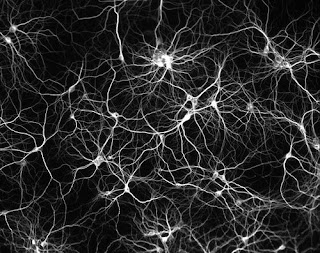 In a recent article in Science magazine, Constance Holden reports that European researchers are contemplating a revival of fetal tissue transplantation for the treatment of Parkinson’s disease. As the article recounts, fetal transplants were subjected to sham controlled studies in the late 1990s; none performed better than sham, and several caused disabling dyskinesias. So should fetal tissue transplantation be revived, and if so, how?
In a recent article in Science magazine, Constance Holden reports that European researchers are contemplating a revival of fetal tissue transplantation for the treatment of Parkinson’s disease. As the article recounts, fetal transplants were subjected to sham controlled studies in the late 1990s; none performed better than sham, and several caused disabling dyskinesias. So should fetal tissue transplantation be revived, and if so, how?
The ethical issues seem just as daunting. Deep brain stimulation has greatly improved the management of Parkinson’s for patients who are no longer responding to dopamine replacement. And yet, those pursuing fetal tissue transplantation will likely advocate pursuing trials in younger patients with less advanced disease. As pointed out by a European team of researchers, “A significant effort of bioethical research and conceptual clarification is required in anticipation of the first protocols involving human subjects.” And in a recently published article in Movement Disorders, several coauthors and I outline various ethical challenges presented by such studies. These include a high degree of uncertainty about the safety of interventions, and a baseline risk associated with delivery that approaches levels of risk encountered in phase 1 cancer trials (for studies that involve eight inoculations to the brain, risk of intracerebral brain hemorrhage leading to permanent neurological deficits is on the order of 2%).
Advocates of the new wave of studies insist we know much more about the properties of fetal tissues than we did in the 1990s; they further note that such studies will provide a basis for later studies involving induced pluripotent stem cells and other tissues. Perhaps, but given the remaining uncertainties and promise of DBS, it’s hard to imagine how fetal graft experiments could credibly establish a claim of clinical equipoise with deep brain stimulation. For these reasons, a more prudent ethical course—if fetal transplant studies for Parkinson’s are to be done at all—would be to pursue safety and feasibility studies in patients who are no longer responsive to standard care. Only once parameters are optimized and mechanisms well understood should clinicians consider studies in patients who are earlier in the disease process. (photo credit: Ethan Hein 2008)
BibTeX
@Manual{stream2009-82,
title = {Remembrance of Things Past: Fetal Tissue Transplantation and Parkinson’s Disease},
journal = {STREAM research},
author = {Jonathan Kimmelman},
address = {Montreal, Canada},
date = 2009,
month = oct,
day = 29,
url = {http://www.translationalethics.com/2009/10/29/remembrance-of-things-past-fetal-tissue-transplantation-and-parkinsons-disease/}
}
MLA
Jonathan Kimmelman. "Remembrance of Things Past: Fetal Tissue Transplantation and Parkinson’s Disease" Web blog post. STREAM research. 29 Oct 2009. Web. 10 Jan 2025. <http://www.translationalethics.com/2009/10/29/remembrance-of-things-past-fetal-tissue-transplantation-and-parkinsons-disease/>
APA
Jonathan Kimmelman. (2009, Oct 29). Remembrance of Things Past: Fetal Tissue Transplantation and Parkinson’s Disease [Web log post]. Retrieved from http://www.translationalethics.com/2009/10/29/remembrance-of-things-past-fetal-tissue-transplantation-and-parkinsons-disease/

With organizations such as yourself, and champions in the media such as, Micheal J. Fox and Muhammad Ali, Parkinson’s Disease has finally gained the notoriety it deserves. Due to the extensive research and awareness your organization spreads, medical advancements and Parkinson’s symptom remedies have been created. Here, at Disease.com (a website dedicated to disease preventions and treatments) we not only appreciate your success, but we are dedicated to your future. If you could, please list us as a resource or host our social book mark button, it would be much appreciated. Let us spread the awareness, while fight the cause.If you want more information on that please email me back with the subject line as your URL
I recently came accross your blog and have been reading along. I thought I would leave my first comment. I dont know what to say except that I have enjoyed reading. Nice blog. I will keep visiting this blog very often.
Lucy
http://maternitymotherhood.net
Mabel:
Thanks very much for your interest in my blog and your kind words.